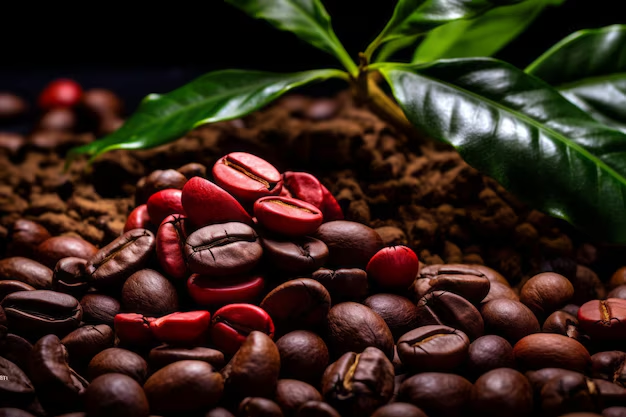
Coffee is one of the most beloved beverages worldwide, enjoyed by millions for its rich flavor and energizing effects. Beyond just a morning pick-me-up, coffee carries a profound cultural significance and has a fascinating history that spans centuries and continents.
A Brief History of Coffee
The origins of coffee can be traced back to the ancient coffee forests of Ethiopia. Legend has it that a goat herder named Kaldi discovered the energizing properties of coffee beans when he observed his goats leaping energetically after consuming the berries from a certain shrub. Intrigued, Kaldi tried the berries himself and experienced the same burst of energy.
Coffee began its journey from Ethiopia to the Arabian Peninsula, where it became an integral part of social life. By the 15th century, coffee was being cultivated in Yemen, and coffeehouses known as "qahveh khaneh" started appearing in the region, becoming important centers for conversation, music, and intellectual exchange. The beverage made its way to Europe in the 17th century, where it quickly gained popularity, leading to the establishment of coffeehouses throughout major cities, becoming hubs for socialization and commerce.
Coffee Cultivation and Processing
Today, coffee is cultivated in over 70 countries, primarily in tropical climates known as the "Coffee Belt." The two most prominent species are Coffea arabica (Arabica) and Coffea canephora (Robusta). Arabica beans are known for their smooth, delicate flavor and are generally considered higher quality, while Robusta beans are more bitter and have a stronger caffeine punch.
The process of growing coffee is meticulous and labor-intensive. It involves planting the seedlings, nurturing the plants, and, when the cherries ripen, hand-picking them. After harvesting, the cherries must be processed through various methods, including washed, natural, or honey processing, each imparting distinct flavor profiles to the final product.
The Art of Brewing
Brewing coffee is an art that varies widely around the globe. Different brewing methods yield different flavors and experiences. For instance, espresso machines, pour-over methods, and French presses each bring out unique characteristics of the coffee.
In addition, the coffee culture varies significantly from one region to another. In Italy, a quick espresso symbolizes a fast-paced lifestyle, while in Sweden, coffee breaks, or "fika," emphasize the importance of slowing down and enjoying life with friends over a cup of coffee and pastries.
The Social Ritual of Coffee
Beyond its physical properties, coffee acts as a social glue that binds people together. Whether meeting a friend at a café or gathering colleagues for a brainstorming session at work, coffee provides a familiar backdrop for connection and conversation. Coffeehouses are often seen as cultural landmarks where art, music, and ideas flourish.
Sustainability and Future Trends
In recent years, consciousness around sustainability and ethical sourcing has risen dramatically within the coffee industry. Consumers are increasingly aware of where their coffee comes from, pushing companies to adopt fair trade practices and prioritize environmental care in their cultivation methods.
Moreover, the coffee industry has seen innovations like single-origin sourcing, which allows consumers to experience the distinct flavors from specific regions, and cold brew techniques, which have gained popularity for their smooth and refreshing qualities.
Conclusion
Coffee is not merely a beverage; it is a global phenomenon that invites us to explore its complexities and appreciate the cultural tapestry it weaves. From its ancient origins in Ethiopia to the modern specialty coffee shops that dot our cities, coffee continues to evolve and enrich our daily lives. So, the next time you sip your favorite brew, take a moment to savor its flavors and reflect on the rich history it embodies.
article by imageoss is licensed under CC BY-NC-ND 4.0